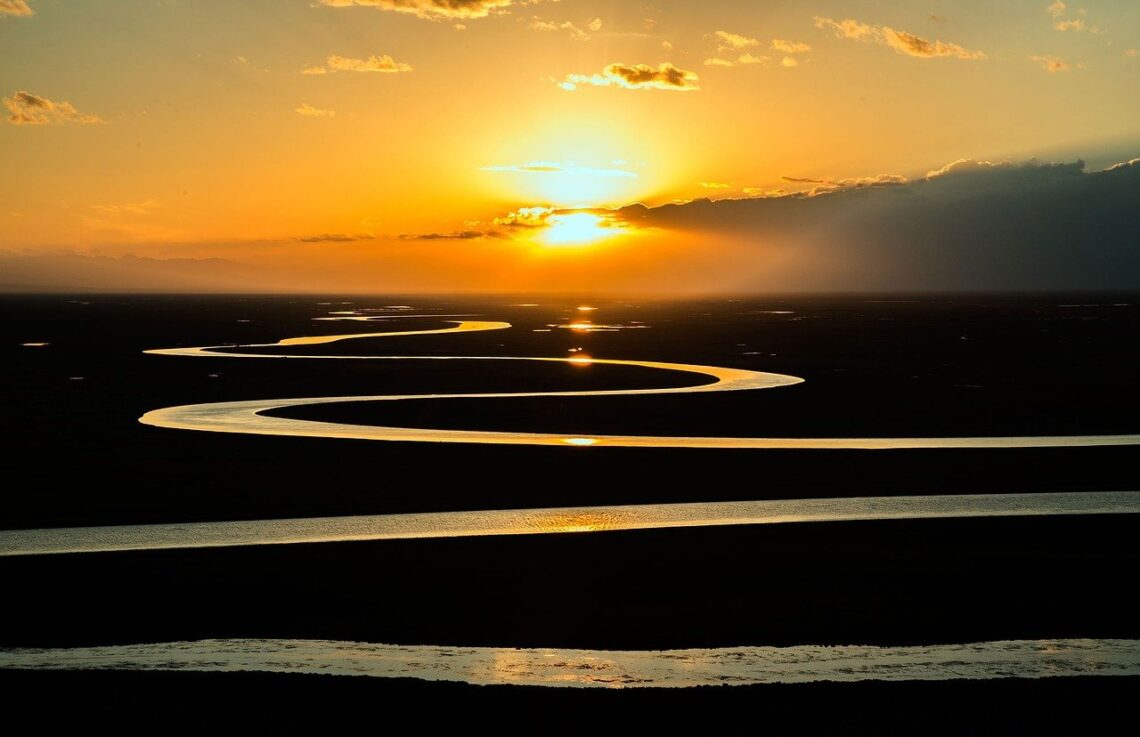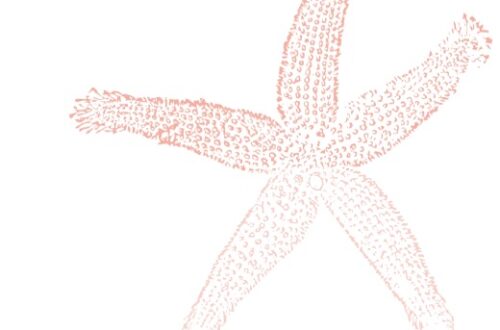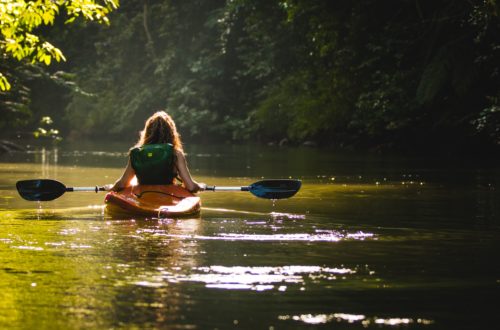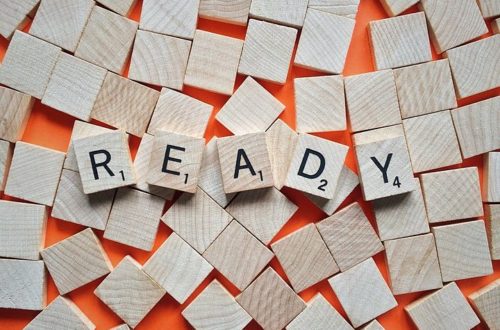“Hey, what’s that in the river?! It looks like…. It can’t be…Yes… yes, it’s a BABY! Oh my gosh, here comes another one! What on earth is happening?!? Where are those babies coming from?!”
The people on the river banks jump in to rescue the babies floating downstream. They are able to reach them and save the babies from drowning. Then the next day, there are four babies struggling in the river! More folks jump in and save those babies. This process continues each consecutive day until finally, one of the people on the riverbank turns and runs upstream. “Where are you going?” shout the others. “I’m going to see who keeps throwing the babies in the river!”
Perhaps you have heard this parable before. It takes some time before the people watching the river full of floating babies realize that they need to find out why the babies are in the river in the first place. And that, my friends, is what we need to think about regarding garbage, recycling, and consumption. Right now, most of the practices we are familiar with are downstream: we buy something and throw it “away”. Or perhaps if we’re lucky, there may be a way to recycle it. As Annie Leonard said in The Story of Stuff, “Recycling is adult, like brushing your teeth, but it isn’t enough. It will never be enough.”
For almost twenty years, I was on the curriculum committees for the Northwest Earth Institute’s discussion courses. I recently found a fellow participant’s notes on how we humans must start thinking upstream if we want to have a positive impact on climate change rather than a negative one. The notes quoted here are from Earth Day, 2010:
“…I think we need to explain to folks why turning on a light switch, why allowing the water to run, why spraying our lawns, why consuming/throwing out so much stuff, etc., affects far more than our wallets and our personal health. I suggest that we build the following bridges for folks. (The following are some of the suggestions for “thinking bridges”):
1. Turn on the light switch, electric or electronic equipment>coal or uranium had to be mined somewhere; destruction of mountains in West Virginia or elsewhere. Effects of that: pollution, chemical contamination, CO2.
2. Turn on tap water > water must be pumped out of an aquifer (or other sources) and purified. …clean water is becoming scarce worldwide due to all the pollution from chemical contaminants, industrial agriculture practices like CAFOs, overpopulation, etc.*
3. Turn on car > petroleum had to be pumped and brought to a refinery. Chemical and air pollution from transportation, production, and consumption.
4. Throw out “obsolete” electronics (built-in obsolescence)> heavy metal disposal, transportation to a third world country for recycling. Human health impacts and pollution. Need to mine precious and hazardous materials to produce newer electronics, manufacture, and transport.
5. Food > I’d like to see information about non-seasonal foods being brought from across the world, and the benefits, both to the environment and to health, of eating local/seasonal foods. And perhaps information about the harms of the industrial food system.
6. Chemicals > on the lawn, in cleaning products, medications that get peed down the toilet, etc. cause pollution of the water and adverse health effects.
7. Plastics > not only how the toxins we absorb through their use affect our health, but what they’re made of, and what it takes to dispose of them.”
All of these items are like those babies in the river. We can try to grab them as they come downstream, or we can go upstream and find out where the problems are being created. We need to address the causes, the destructive decisions that led to “floating babies”. We as individuals we have an obligation to learn more about how our choices impact those around us, human and nonhuman. We don’t have the luxury of waiting any longer for someone to take us by the hand and explain the consequences to us; that hasn’t happened so far. It’s part of being a grownup participant in the greater community of life. We cannot afford not to care about each other and the planet we depend on. We have to understand that all of life is interdependent. Words matter – that is true, but actions matter even more. We have to decide what we truly love.
Small changes do make a difference, and one has to start somewhere. The first thing we did (in the mid-nineties) was to stop using paper napkins and to start using cloth napkins which were washed weekly. Easy peasy, and it saved us money to boot. Then we started taking our own bags to the grocery stores. Then started figuring out all sorts of other ways to reduce our use of resources. Think about one thing you already do to reduce your waste/impact. Make a list of the actions you take because it’s important to make note of one’s accomplishments. Then keep going and keep reducing your consumption of our Earth’s resources. And find other like-minded folks. There are so many groups/organizations where you can find connections. AND, read and learn. The more you learn, the more you become empowered and understand what actions you can take and changes you can make. You will feel good knowing that you are making a difference. And you will be able to demand more from those making decisions about our resources.
You may have seen a poster that I share in my waste reduction class. There is an image of a plastic spoon with the following words:
“IT’S PRETTY AMAZING THAT OUR SOCIETY HAS REACHED A POINT WHERE THE EFFORT NECESSARY TO EXTRACT OIL FROM A REFINERY, TURN IT INTO PLASTIC, SHAPE IT APPROPRIATELY, TRUCK IT TO A STORE, BUY IT, AND BRING IT HOME, IS CONSIDERED TO BE LESS EFFORT THAN WHAT IT TAKES TO JUST WASH THE SPOON WHEN YOU’RE DONE WITH IT.”
The first time I read that, I was gobsmacked. Oh yeah, why are we pumping oil for that?! Is convenience more important than our children’s futures? It wasn’t always this way. What have we turned into?
As Kathleen Dean Moore writes in Great Tide Rising, “…conscientious refusal can be a kind of liberation – a good joke on everybody’s corporate handlers. Moreover, it can be a sacrifice in the ancient sense: to make sacred, to give up something, some self-gratification, to bring oneself into closer relation to what is good in itself. Renouncing a hyper-consuming life, turning away from world-hurting practices, is a chance to think more clearly about what gives you true joy and moral courage”.
That sounds empowering to me.
Books to read/listen to:
Great Tide Rising – Kathleen Dean Moore
Active Hope – Joanna Macy
Garbology – Edward Humes
Living Downstream – Sandra Steingraber
Life Without Plastic – Chantal Plamondon and Jay Sinha
Fun, inspiring film: The Clean Bin Project
Films that clarify interconnection: Fantastic Fungi and The Biggest Little Farm
*CAFO impact: https://www.sierraclub.org/michigan/why-are-cafos-bad
Betty Shelley is a Master Recycler (class #2), a former Metro Recycling Information Specialist, an Agent of Change, and the founder of Reduce Your Waste Project. Betty found Northwest Earth Institute in 1993 when it was started in Portland. The NWEI discussion courses made her more aware of the choices we make as well as the consequences of those choices. Since 2006, Betty and her husband, Jon, have had just one 35-gallon can of garbage per year. The Shelleys offer the class “Less is More: Getting to One Can of Garbage a Year”.






